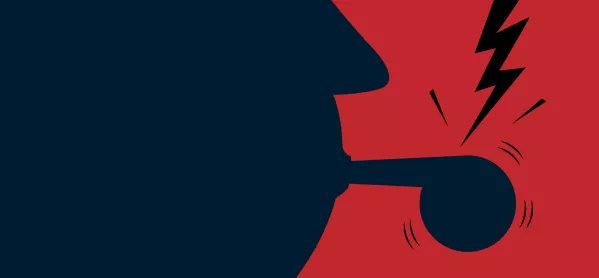- Home
- Leadership
- Compliance
- What could child sexual abuse report mean for schools?
What could child sexual abuse report mean for schools?

On Thursday, 20 October, the Independent Inquiry into Child Sexual Abuse released its final findings.
The report is seven years in the making, and investigations covered 15 instances of abuse in settings, including local authorities, churches and schools.
The inquiry makes three recommendations for changes in the law. The most pressing for teachers covers mandatory reporting, which is overwhelmingly supported by the inquiry’s Victims and Survivors’ Forum.
If implemented, mandatory reporting would require individuals in certain roles, either paid or voluntary, to report allegations of child sexual abuse to the relevant authorities. Failure to do so could lead to committing a new criminal offence of “failure to report an allegation of child sexual abuse when required to do so”.
People working in a regulated activity or in a position of trust, including teachers, would have a statutory duty to report child sexual abuse in the following instances:
- If they were informed of child sexual abuse.
- If they witnessed a child being sexually abused.
- If they observe recognised indicators of child sexual abuse.
There are a handful of instances where mandatory reporting would not apply. For example, if the child is aged between 13 and 16 years of age, a report need not be made if the individual believes that:
- The relationship between the parties is consensual and not intimidatory, exploitative or coercive, and
- The child has not been harmed and is not at risk of being harmed, and
- There is no material difference in capacity or maturity between the parties engaged in the sexual activity concerned, and
- There is a difference in age of no more than three years.
However, the exceptions above would not apply where the alleged perpetrator is in a position of trust, such as a teacher. Furthermore, where a child is under the age of 13, a report must always be made.
What would that mean for schools?
For teachers, it would mean comprehensive training in what the new law obliged them to do. Teachers would need to be vigilant and familiar with the as yet undefined “recognised indicators” of child sexual abuse.
Child sexual abuse is found in all manner of settings - at home, at school, in clubs - but, very often, it is the school that hears about it first.
Schools will need strict and clear reporting measures to ensure that mandatory reporting is happening when it should. A properly documented system helps combat child sexual abuse and prosecute perpetrators, and provides protection from prosecution for reporters.
If a teacher sees something that might be child sexual abuse, records and reports it in detail with their school and there is consideration as to what should be done - that could provide an effective defence to any subsequent prosecution.
Failure to record the incident would constitute a criminal offence.
How could it be enforced?
Most European countries, as well as parts of the US, Canada and Australia, already have this law and there are reports of successful prosecutions. However, any criminal prosecution depends on the provision of good evidence.
When child sexual abuse is not documented, a court would need to balance the evidence of different witnesses.
There is a danger of teachers seeing something but failing to view it as child sexual abuse and consequently being subject to prosecution for their “negligence”. This is why education and training on the signs of child sexual abuse, and how to report it, will be more important than ever.
However, in practical terms, any report that the law had been broken would not necessarily mean that the police would descend and arrest everyone. It is far more likely that normal child safeguarding procedures would be activated to find out what was going on first.
The law is unlikely to be retrospective, which means that failures pre-dating the law’s introduction cannot be prosecuted.
However, as time goes on, we could expect to see prosecutions emanating from “historic” incidents, where someone discloses abuse that occurred while they were at school as an adult, and accuses their teacher of not believing them.
Conclusion
Mandatory reporting is a huge step forward, encouraging teachers and anyone else who works with children to stay vigilant and raise the alarm.
Child sexual abuse has been a hidden issue for far too long. Hopefully, the next government will get to work and prioritise implementing these recommendations.
Historically, organisations were more concerned with protecting their reputation than the children in their care.
This approach shielded abusers and put children at risk. As we move towards a more transparent way of working, the next government should implement the inquiry’s recommendations.
This will make it easier to prosecute perpetrators and, most importantly, it will protect children.
Malcolm Johnson, head of abuse claims at Lime Solicitors
You need a Tes subscription to read this article
Subscribe now to read this article and get other subscriber-only content:
- Unlimited access to all Tes magazine content
- Exclusive subscriber-only stories
- Award-winning email newsletters
Already a subscriber? Log in
You need a subscription to read this article
Subscribe now to read this article and get other subscriber-only content, including:
- Unlimited access to all Tes magazine content
- Exclusive subscriber-only stories
- Award-winning email newsletters
topics in this article



